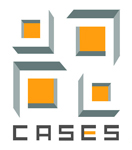WP 8 - Assessment of Policy Instruments to Internalise Environment-Related External Costs in EU Member States, Excluding Renewables
Objectives
- To assess policy instruments to internalise environment related external costs in EU Member States, excluding renewables;
- To investigate stakeholders preferences for policy instruments for the internalisation of external costs of non-renewable energy sources through a stakeholders workshop (together with WPs 9-11).
Description of work
WP 8 addresses (closely with WP 9, 10 and 11) the assessment of instruments to internalise environment related external costs, focusing on policy instruments in EU Member States, excluding renewables. It deals with non-renewable sources and their pricing mechanisms. It focuses on the most important trends in energy supplies, policies and problems, such as the shift away from nuclear and fossil fuels, or the shift to gas; greenhouse gas policies and trading; hidden costs related to grid connection or disconnection; and the future changes in base load and peak load.
Task 1: Synopsis of all relevant policy instruments (taxes, permits, command and control, voluntary agreements, etc.) for non-renewable energy sources and systems used by EU Member States. Synergies with WP9 and WP10 are exploited.
Task 2: Analysis of the extent to which different policy instruments succeed to internalise external costs of fossil fuels and nuclear energy with reference to 2010, 2020, 2030 scenarios of energy use provided by WP1. A comparative full cost assessment is undertaken emphasising the comparison of nuclear and fossil fuels.
Task 3: Analysis of policy linkages for fossil fuels use reduction and GHG emissions trading regimes.
Task 4: Development of suggestions to improve the instruments for reducing negative social and fiscal impacts while increasing their power to achieve an extensive internalisation of the external costs of the use of fossil fuels and nuclear energy; and of a suggestion for an integrated EU policy for the external costs of fossil fuels and nuclear energy. Finally, an analysis of the hidden costs of the implementation of different policy instruments for internalisation of external costs of fossil fuels and nuclear energy is carried out. This task is validated by stakeholders involved in stakeholder workshop 2 that exploits Cost-Benefit Analysis (CBA) and Multi-Criteria Decision Analysis (MCDA). The workshop investigates stakeholders views on policies for the internalisation of the external costs of energy production and on the promotion of renewables. Particular attention is given to policy instruments impacts on employment/competitiveness, effectiveness in achieving internalisation, administrative costs, dynamic incentives for technological innovation, flexibility of adjustment once policy introduced, distributional, equity and acceptability consequences, security of supply.
Tasks are carried out by FEEM, NTUA, PSI, under the co-ordination of VITO.



 This website reflects only the views of the CASES Consortium and does not represent the opinion of the European Community. The European Community is not liable for any use that may be made of the information contained herein.
This website reflects only the views of the CASES Consortium and does not represent the opinion of the European Community. The European Community is not liable for any use that may be made of the information contained herein.